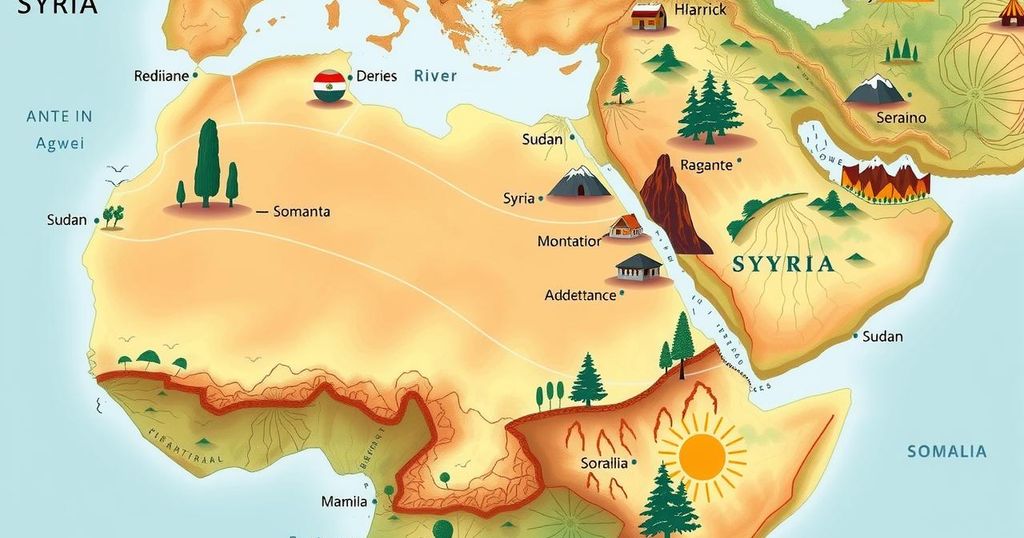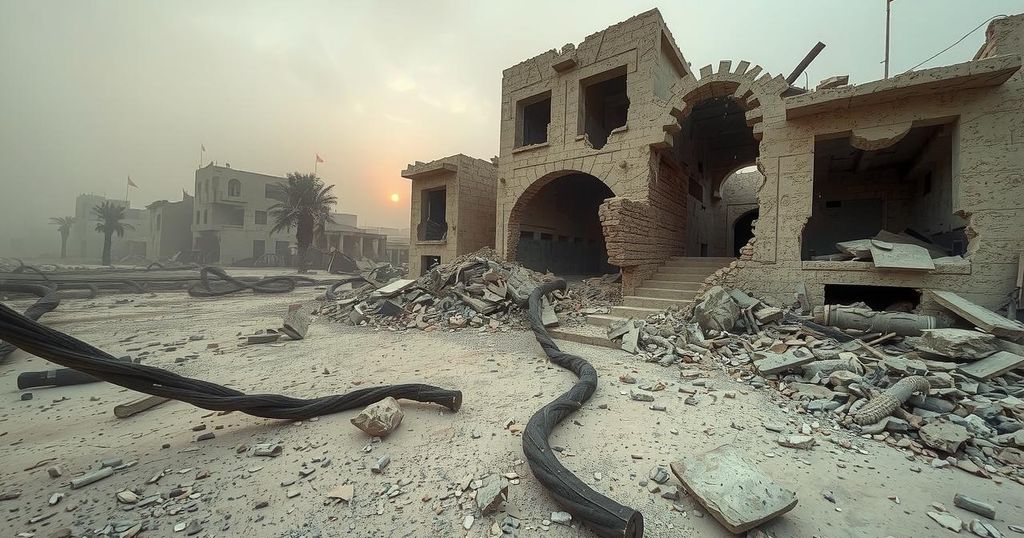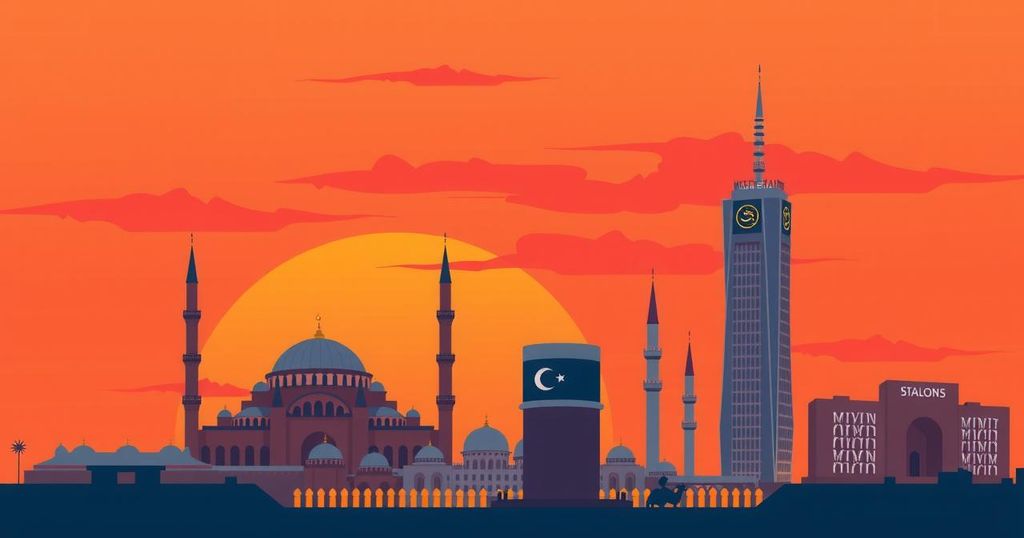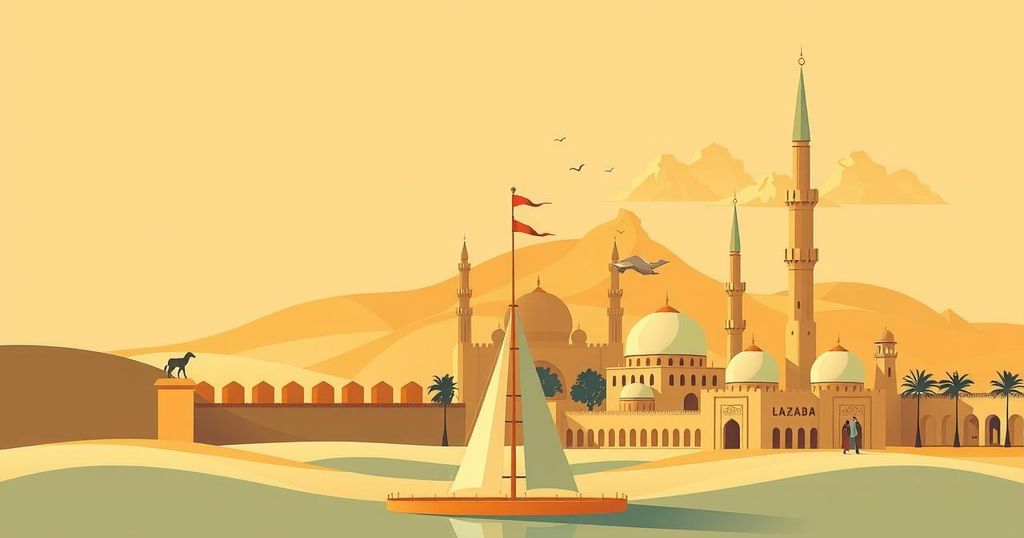The U.S. and Israel are exploring Syria, Sudan, Somalia, and Somaliland as potential resettlement options for Gaza’s population. However, strong opposition from Arab states and complex diplomatic relations raise significant challenges to these plans. President Trump’s proposals have been met with rejection from the involved countries, emphasizing the difficulties in relocating Gazans.
The ongoing search by the United States and Israel to find new homes for Gaza’s 2 million residents includes considerations of Syria, Sudan, Somalia, and Somaliland. However, early responses indicate substantial challenges to this initiative. President Donald Trump’s controversial proposition to ‘take over’ Gaza, subsequently rebuilding it and relocating its population, met with significant opposition from Arab states, who are refusing to accept the displaced Gazans.
The relations between Israel and the involved nations are intricate. Efforts reported by CBS News suggest that the Trump administration attempted to engage with the new Syrian government, led by Ahmad al-Shara, a previously designated terrorist. However, al-Shara condemned the evacuation plan, labeling it a serious crime and suggesting it would fail. Despite these developments, a senior Syrian source claimed ignorance of any contacts about the issue, reflecting the complex dynamics at play.
The outreach to Sudan and Somalia has likewise encountered firm resistance. Sudan’s military chief, Gen. Abdel-Fattah Burhan, has explicitly rejected the proposal to relocate Palestinians, while Sudanese sources report that U.S. offers of military aid and reconstruction were immediately declined. Somalia, historically supportive of the Palestinian cause and facing its own struggles, is unlikely to consent, as evidenced by remarks from its ambassador to the U.S., stating no contact has been made regarding any such relocation.
Somaliland, a relatively stable region with a unique socio-political status, is also under consideration. Although it declared independence back in 1991, it remains largely unrecognized. Notably, Somaliland maintains connections with the UAE, which has rapport with Israel. Recent discussions with Somaliland indicate potential mutual benefits, wherein recognition could be exchanged for assistance, positioning it as a noteworthy option amid the complexities surrounding Gaza’s population relocation.
In conclusion, the search for new homes for the population of Gaza remains fraught with diplomatic challenges. Despite efforts by the U.S. and Israel to engage with Syria, Sudan, Somalia, and Somaliland, strong opposition from Arab nations and unstable relations hinder progress. The complexities of these international relations underscore the considerable obstacles facing any potential evacuation of Gazans, emphasizing the urgency and delicacy of the situation.
Original Source: allisrael.com




